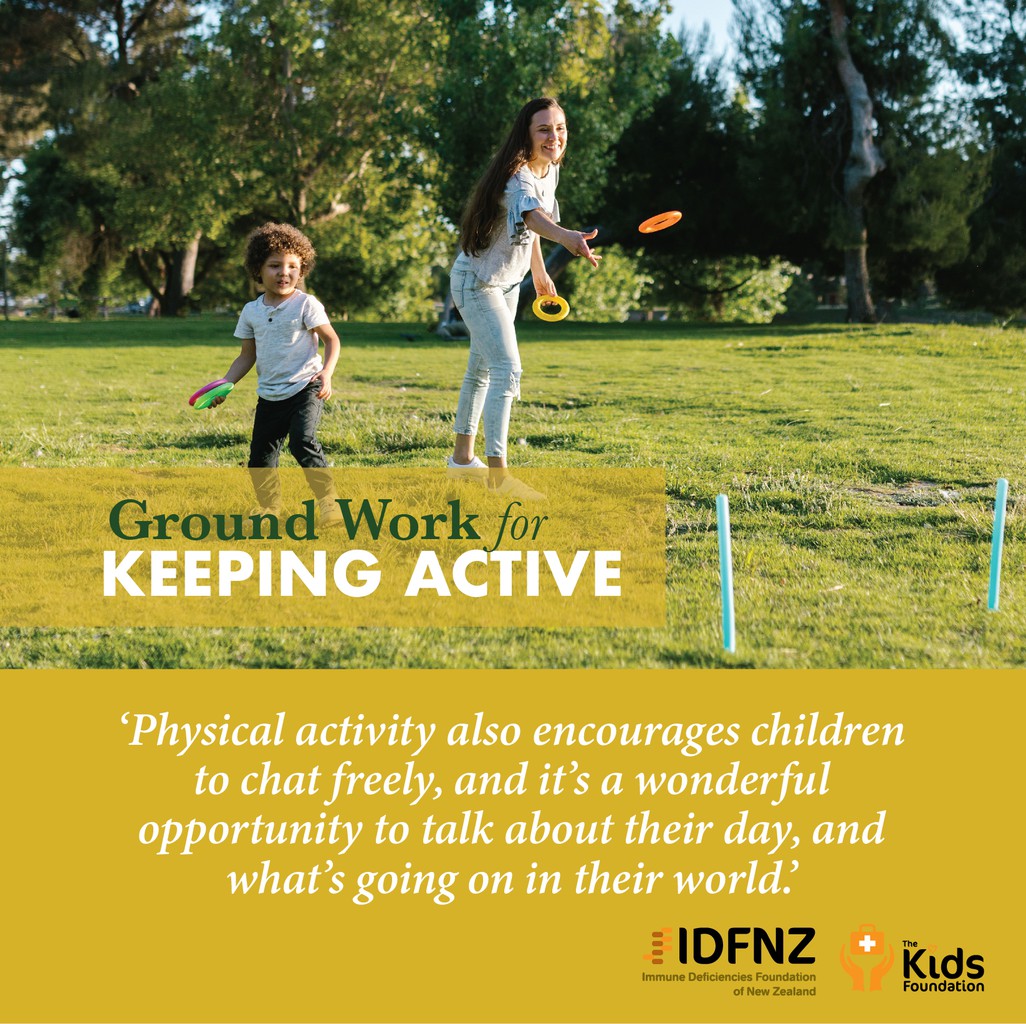Ground Work for Keeping Active Pt.2
Mon Jan. 23rd 2023

"Physical activity also encourages children to chat freely, and its a wonderful opportunity to talk about their day, and what's going on in there world"
Motivation
So there’s plenty to be gained from regular physical activity, but how do you encourage your child off the screen and into some movement? Find out what motivates your child. One motivator can be the social interaction aspect. Activity with other people is fun, playing with friends and in teams is a great motivator for those who enjoy the company.
For other children, the knowledge of the benefits of activity is enough of a motivation, for example knowing how they feel relaxed and happier after jumping on the trampoline. Or by knowing their muscles and lungs are getting stronger every time they have a good run around.
Some children are motivated by internal rewards. They intrinsically know that kicking the ball over the goal posts time and time again will help their accuracy and ‘practice makes perfect’. They are motivated and willing to pursue activity in order to reach their own goals.
Personality
It’s important to also consider your child and their personality. Children and teens generally fall into one of 3 categories; The Athlete, The Casual Athlete, or the Non-Athlete.
The Athlete: this child has natural ability, loves to be involved in sport or activity, and is likely to seek out different ways to engage in physical play.
The Casual Athlete: This child is interested in being active, but isn’t a star player and is more likely to feel defeated or discouraged in a competitive environment.
The Non-Athlete: This child may lack natural athletic ability, and appears un-interested in physical activity.
For both the ‘casual and non-athlete’, unconventional exercise may be the key. If you push these children too hard into something they don’t enjoy, you may risk turning them off exercise completely. Make a list of activities that involve movement with your child and find activities that are fun for them.
If your child seems reluctant, talk with them about what might be holding them back. Every child has their own individual likes and dislikes. It is important to be aware and address any fears or frustrations your child may have. Some children are reluctant to participate in activities because they are afraid of teasing or not keeping up with others. If your child knows you understand and have their back, they’ll gain confidence to give things a go. Encourage and celebrate progress, no matter the scope. It will help set the foundation for a more active lifestyle.
If your child is keen to pursue excellence in a sport, do what you can to make it easy for them by providing transportation, the gear or equipment needed, and helping with enrolments and administration. The athlete, for example will want to be on the school soccer team, while the casual athlete may just enjoy kicking a ball around with a friend or at home on the driveway. The non-athlete is likely to need encouragement to go outside and try something active. It’s important to encourage your child, no matter their inclination, to remain active.
